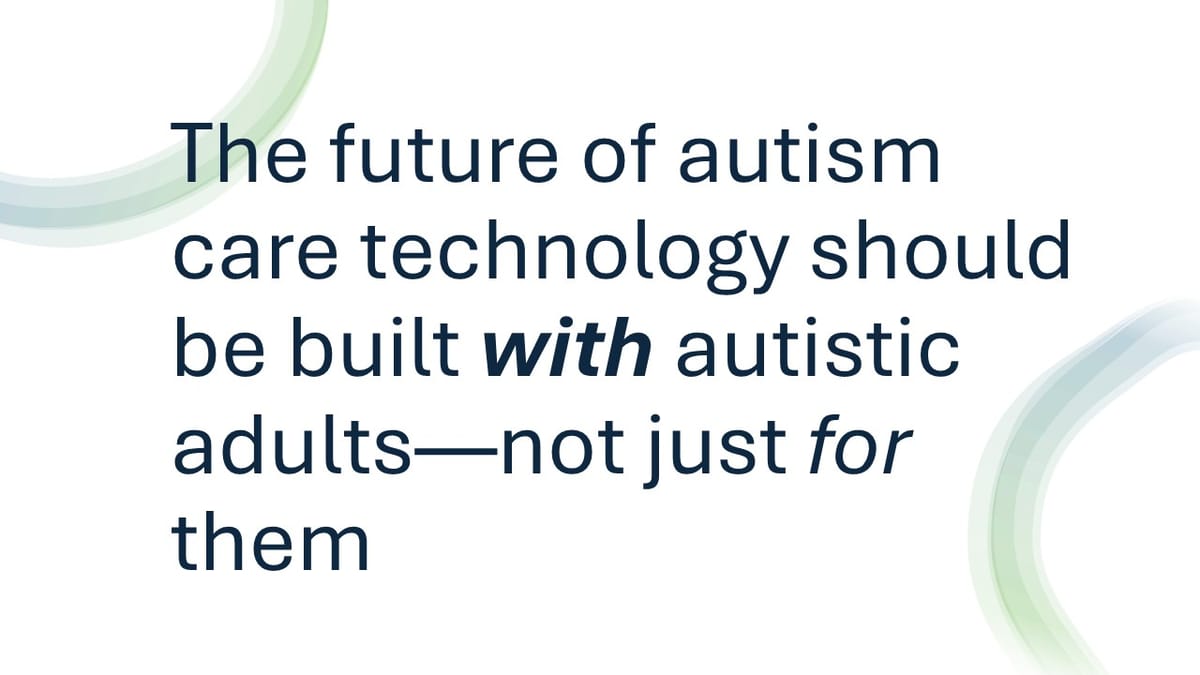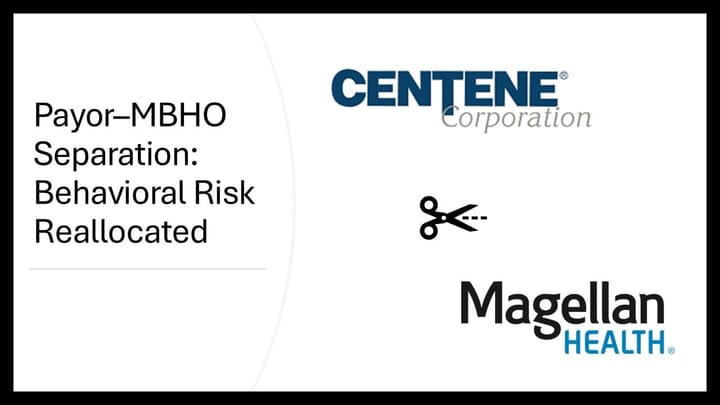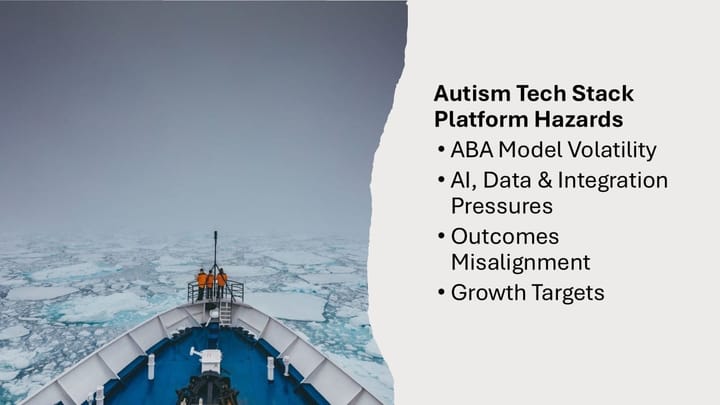Building the Future of ABA Tech WITH the People We Serve

How neurodiverse technologists could help solve ABA’s biggest data and infrastructure problems—if investors, providers, and platforms choose to lead
At the University of Pittsburgh, a team of QA engineers from CAI Neurodiverse Solutions recently helped automate testing for the school’s CRM systems. Their results were remarkable: 83% of manual test cases automated, 94% pass rates, faster deployments, and lower burnout across the team.
These weren’t just strong results—they were a proof point. That a neurodiverse team of autistic professionals could deliver high-value, enterprise-grade work in one of the most overlooked corners of tech: quality assurance and automation.
And yet, this story isn’t just about Pitt. It’s about the broader autism innovation ecosystem—and who gets included in it.
The gap between intention and action
Every investor in the autism space talks about impact. Most genuinely care. Some have even backed companies like Auticon and Specialisterne, which employ neurodiverse technologists in QA, data, and annotation roles. That support is meaningful.
But it’s not enough.
These same investors are also pouring millions into practice management software, AI tools, intake systems, and care coordination platforms. They demand growth, scale, automation. And yet, it feels to me as though none of their portfolio companies are really being pushed—or even encouraged—to hire autistic adults into the product and data workflows that underpin these solutions.
We celebrate outcomes. We celebrate automation. But the people we claim to serve remain on the outside looking in.
The human side of the future we’re building
A close friend of mine works at Pitt in IT and has a teenage son (my godson) on the autism spectrum. His son is bright, curious, and already showing strong aptitude for technology. But as any parent in this space knows, childhood services are just one chapter. My friend challenged me: What kind of future are we building for autistic adults?
That question isn’t theoretical. It’s personal—and pressing.
When my friend partners with neurodiverse engineers through a QA vendor like CAI, he sees more than productivity gains. He sees a potential future for his son. A career path. A proof point that technical excellence and lived experience aren’t mutually exclusive. They can—and should—coexist.
ABA’s data problem is a neurodiverse opportunity
ABA providers are overwhelmed by disconnected systems: scheduling, payroll, clinical notes, outcomes, credentialing. Cleaning and stitching this data together is tedious, error-prone, and often ignored.
But it doesn’t have to be.
This is the kind of structured, logic-driven, detail-heavy work that many autistic professionals excel at. Firms like Aspiritech, and Ultranauts already prove this every day—delivering reliable, repeatable work for enterprise clients in finance, software, and compliance.
This isn’t just an inclusion initiative. It’s a business opportunity waiting to be claimed.
Whether you're building a care platform, running an ABA provider group, or investing behind the scenes—this is a practical, scalable way to drive outcomes and live the mission.
A message to investors, providers, and platforms: this is a win-win
If you’ve invested in ABA tech, you already influence the strategy, roadmap, and hiring practices of your portfolio companies. You shape how these platforms scale—and who gets to participate.
If you're a platform or provider executive, you don’t have to wait for investor permission. Hiring neurodiverse talent into data workflows, tech services, and AI pipelines is not only possible—it’s smart.
You say you care about autism. Here’s a way to prove it:
💡 Build or partner with teams that include neurodiverse professionals in product, data, and infrastructure work.
💡 Support relationships with companies like Auticon, CAI, and Specialisterne.
💡 Treat inclusive hiring as an accelerant for operational performance—not just a feel-good initiative.
This isn’t about charity. It’s about alignment.
There is a generation of autistic adults with real skills, ready to contribute. And there is a generation of autism-tech companies desperate for better infrastructure. The overlap isn’t hypothetical. It’s obvious.
We don’t need to scold or guilt our way into action. We just need to act on what’s already clear:
This is good business. And it’s the right thing to do.
Because the future of autism tech shouldn’t just be built for autistic people. It should be built with them.
Discover Neurodiverse tech vendors and other software vendors in the ABA Tech Platform Directory
Click here to subscribe for more insights on ABA technology, operations, and strategy.



